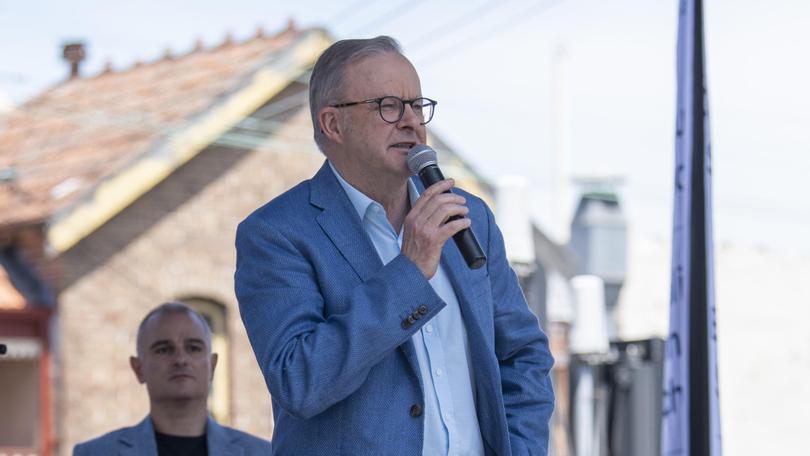Student debt repayments to drop in fresh cost-of-living pitch
People with student loans will pay an average of $680 less back each year with a change in the repayment system aimed at boosting the take-home pay of a million young Australians.

Workers with student loans will have their repayments cut by an average of $680 a year.
The Government’s latest measure to combat the cost-of-living crisis is aimed at lifting the take-home pay of a million young Australians.
Under the new arrangements, the minimum repayment threshold will lift from $54,000 to $67,000 in July next year and be indexed to remain at 75 per cent of average graduate earnings.
Sign up to The Nightly's newsletters.
Get the first look at the digital newspaper, curated daily stories and breaking headlines delivered to your inbox.
By continuing you agree to our Terms and Privacy Policy.The Government says this will help all graduates earning up to $180,000 a year and give young people fresh in the workforce breathing space.
Those on $70,000 a year will have $1300 cut from their minimum repayments per annum while someone earning $80,000 will save $850. Repayments on the average HELP debt will drop by about $680.
Prime Minister Anthony Albanese will announce the changes to HELP repayment arrangements on Sunday ahead of a week in Parliament.
The Universities Accord report, given to the Government in February, found existing repayment arrangements disproportionately penalised people on lower income, particularly women, and created incentives for graduates to limit their working hours so they didn’t tip into the next income bracket.
It recommended moving to a marginal system where repayments were only levied on earnings above each threshold, rather than against a person’s entire income, working in the same way as income tax.
The measures build on a move in May’s budget to lower indexation rates on student debt, which were backdated to wipe out about $3 billion owed by former students.
That legislation is yet to pass the Senate but is expected to have the backing of the Coalition.
The new changes will be put to Parliament early next year.
Mr Albanese said Labor governments would always help people under pressure and build for the future.
“Labor will always be the party of education. No matter where you live, no matter how much your parents earn – we will work to ensure the doors of opportunity are open for you,” he said.
“We will make it easier for young Australians to save in the future, and we are going to make the system better and fairer as well.”
He labelled the changes good for cost of living, intergenerational fairness and building the nation’s future.
Mr Albanese’s speech on Sunday at an Adelaide campaign rally alongside popular SA premier Peter Malinauskas will be the first in a series of headland addresses he has planned to lay out a second-term agenda.
“This will be the heart of the positive and ambitious agenda we take to the Australian people at the next election,” he said ahead of the speech.
The Prime Minister has promised colleagues they will head into the election, due by mid-May, with a strong story to tell in terms of the government’s record and its plans for the future.
He wants to make next week’s parliamentary sitting focus on education, with debate on bills for school funding and higher wages for childcare educators.
However, the Government’s agenda has become mired in distractions and controversies over the past month – including about the Prime Minister’s new house purchase and travel upgrades – and questions have repeatedly been raised about Mr Albanese’s judgment.
Originally published on The Nightly

